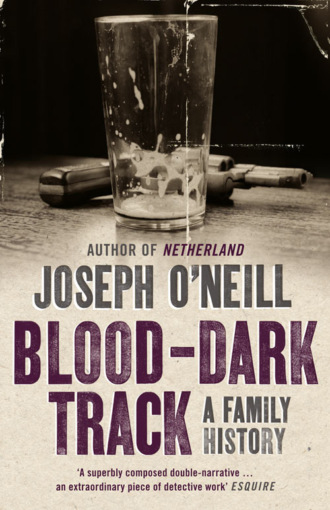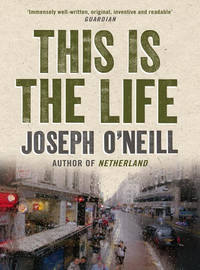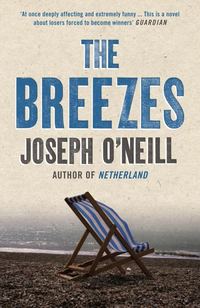
Полная версия
Blood-Dark Track: A Family History
There is a pronounced, almost comical, contrast between, on the one hand, Grandma’s appearance and civilian goodness and, on the other hand, her militaristic political stance. To appreciate the contrariety, you have to understand that Grandma is five foot nothing and a wonder of friendliness. She has curly white hair, clear blue eyes and a girlish, irresistible chortle. Aside from occasional attacks of sciatica, she is a model of health and energy which, even in her late eighties, she devotes to organizing meals on wheels for the elderly, going to Mass, promoting raffles and lotteries in good causes, visiting the sick, and saying rosaries for friends and family in need. All day she receives a stream of visitors – neighbours, children, old pals – in her kitchen, fixing them up with snacks and cups of milky tea. She remembers every birthday of her ten children and thirty-six grandchildren and ever-multiplying great-grandchildren, and she remembers every person who has lived on her street and every disease that has afflicted them. She is unflinching in her love of her family and, remarkably, is somehow able to care for all of us deeply and appropriately. She follows all major international events at which Ireland is represented, from the Eurovision Song Festival to the soccer World Cup to the women’s 5000 metres in the Olympic Games. She is an honorary member of British National Union of Miners, South Wales Area (in 1984, she put up striking miners in her home for months). She boycotts retailers such as Dunnes Stores for breaking the South African trade embargo and mistreating their employees. She is an unblinking supporter of the cause of a united Ireland. She is a veteran of Cumann na mBan, the women’s republican organization. She has given shelter to the most wanted men in the country. She has stored guns under the floorboards.
By the time I went back to the newspaper cuttings about Jim O’Neill, I had already started to mull over my grandfathers’ double troubles. This led me turn to the actual contents of the Letters of Dostoevsky and to read Mr Yarmolinsky’s introduction: hadn’t Dostoevsky himself been in a political jam of some kind? I still barely knew anything about Fyodor Dostoevsky. I certainly didn’t know until Mr Yarmolinsky told me about it that, in April 1849, Dostoevsky was arrested and imprisoned in Petropaulovsky Fortress, accused of ‘having taken part in conversations about the severity of the Censorship; of having read, at a meeting in March 1849, Bielinsky’s revolutionary letter to Gogol; of having read it at Dourov’s rooms, and of having given it to Monbelli to copy; of having listened at Dourov’s to the reading of various articles’. In December 1849, when he was twenty-eight years old, Dostoevsky received the death sentence – which, luckily for him, was commuted moments before he was due to be shot; less luckily, the commutation was to four years’ hard labour in Siberia.
I felt a tingle: there was synchrony in the cuttings being lodged in a book that touched on political radicalism and the loss of freedom. I turned to a letter Dostoevsky wrote to his brother Michael on 22 February 1854, when he had finally served his sentence and was able to write for the first time in years. In the letter – a lengthy and somewhat frazzled dispatch, voicing a jumble of anxieties and needs – Dostoevsky outlined the conditions of his imprisonment and the tribulations he had undergone. In its jittery and unstyled way, the outline was deeply affecting and for a moment plunged me into the cold pool of my grandfathers’ imprisonment. For the first time, albeit for only an instant, I was alerted to how forsaken they must have felt; for the first time, and with a shock, I sympathized with them.
I am not sure why it took a stranger’s letter, and one written in the middle of the last century, to stir my compassion (or, indeed, whether such a roundabout stirring is perverse or heartless); but a clue to this aloofness, may, I think, also be found in Dostoevsky’s letter to his brother.
One midwinter night on the way to Siberia, the horses and sledges transporting Dostoevsky to his exile became stuck in the snow. This happened in the Urals, and as the prisoner waited in the snowstorm for the horses to struggle free, he was struck by the melancholy realization that ahead lay only Asia, and that Europe and his whole past – his whole existence, by implication – were now behind him. Dostoevsky never lost this feeling of disconnection and isolation, which engendered in him the particular fear that he had lost his brother’s love. To combat this fear, he asserted the contrary in his letter (‘I know that you love me, and keep me in kindly remembrance’); but a telling moment of uncertainty arrived when, having furiously criticized Michael for not writing to him in the prison camp, he begged for news:
Write and answer me as quickly as possible; write, without awaiting an opportunity, officially, and be as explicit and detailed as you possibly can. I am like a slice cut from a loaf nowadays; I long to grow back, but can’t. Les absents ont toujours tort. Is that saying to come true of us two?
The lingering phrase, here, is the one in French: ‘les absents ont toujours tort’. As it happens, the use to which it is put is ambiguous: one cannot be sure whether Michael is the absent wrongdoer, or Fyodor. Either way, the saying resonates in the context of my grandfathers.
An element of the taut silences that enclosed Joseph and Jim – surrounded them almost completely, like seas around peninsulas – was that of condemnation. Normally, we may count on an afterlife as a mouthful of stories, but for Joseph and Jim it had not worked out that way. It could be said that there is nothing unusual or wrong about this. If we are lucky, we have better and more urgent things to do than indulge in the regressive business of dwelling on the dead – children to raise, homes to keep up, work problems to figure out, spouses to love. My parents, for example, have been this lucky. However, I had always felt, growing up, that there was more to their silence than distraction or coyness. Nor was it the case that my grandfathers’ absence was due to my grandmothers’ engulfing presences. No, the silence meant more than that. It meant, I sensed, that Joseph and Jim were each in some way in the wrong. Les absents ont toujours tort.
But I didn’t know this for a fact. Actually, I knew just about nothing for a fact – nothing about these men, and very little about the historical circumstances of their lives.
Some might consider ignorance a virtuous trait in an inquirer, a clean slate on which evidence may impartially be inscribed. But it doesn’t work like that, at least it did not in my case. I was, of course, prejudiced; and, like most prejudices, mine found an infantile manifestation. It was not simply that my grandfathers stood accused in my mind of offences that I had not even formulated: it was that I didn’t like their faces. I didn’t like Jim’s face – there was something frightening about his handsome, tooth-baring smile – and I didn’t like the face of Joseph either, in particular the black moustache that made me think of Adolf Hitler.
What had they done wrong, though? Was it connected to their imprisonment? What were the facts?
It so happens that I am, by my professional training, supposed to be equipped as anybody to answer these sorts of questions and set to one side the kind of prejudice I have mentioned. I am a lawyer; more precisely, since lawyers are varietal as butterflies, I am a barrister working mainly in business law. It is a charmless but profitable field. There are countless commercial transactions effected every day, and they give rise to countless disputes. Were the goods defective? Did the surveyor give the bank negligent advice as to the value of a property development? Was there a material non-disclosure entitling the insurer to avoid the policy? For much of my working life I have gone into my chambers, pulled out ring binders from my shelves and tried to get to the bottom of these sorts of hard-boiled questions. After I have gone through hundreds of pages of correspondence, pleadings, affidavits and attendance notes, and sifted the relevant from the discardable, there are further, more finicky sub-questions. What was said in the telephone conversation of 14 February 1998? When did the cracks first appear in the wall? Who is Mr MacDougal? Often, meetings with the client are required to fill in the gaps or to quiz him closely to make sure nothing of significance has been left out. What one learns, pretty quickly, is that frequently the truth remains anybody’s guess – even after all the documents have been scrutinized, all the witnesses have been grilled, and all the solicitors, juniors, silks and experts, racking up fees of hundreds of thousands of pounds, have trained their searchlights into the factual darkness.
Sometimes, however, something is illumined that is strange and unlooked-for and that, although perhaps not decisive of the hard-boiled question, twists the case and gives it a new meaning. This is, in a sense, what transpired after I began to look into the unknown lives of Joseph and Jim, following the narrow beam of their coincidental imprisonment. It led to times and places in which politics might have dramatic and personal consequences; in which people might be impelled to act or acquiesce in the face of evil and embark on journeys of the body and spirit that to many of us, living in the democratic west at the beginning of the new century, may seem fantastical; and in which people might through political action or inaction discover boundaries in themselves – good and bad – that we, casting our vote twice a decade, or losing our temper at the dinner table, or shunning the wines and cheeses of France, maybe cannot hope to know. Maybe. It may be, in fact, that our lives are thrown into greater ethical relief than we suspect. We may be judged strenuously by our descendants, who will perceive distinct rights and wrongs, shadows and crests, that we failed to notice. In part, my grandfathers’ predicaments stemmed from what they saw or did not see around them. To this extent, they stand as paradigms of political and moral visions of different sorts, the blind eye and the dazzled eye, each with its own compensations and each with its own price.
Конец ознакомительного фрагмента.
Текст предоставлен ООО «ЛитРес».
Прочитайте эту книгу целиком, купив полную легальную версию на ЛитРес.
Безопасно оплатить книгу можно банковской картой Visa, MasterCard, Maestro, со счета мобильного телефона, с платежного терминала, в салоне МТС или Связной, через PayPal, WebMoney, Яндекс.Деньги, QIWI Кошелек, бонусными картами или другим удобным Вам способом.




